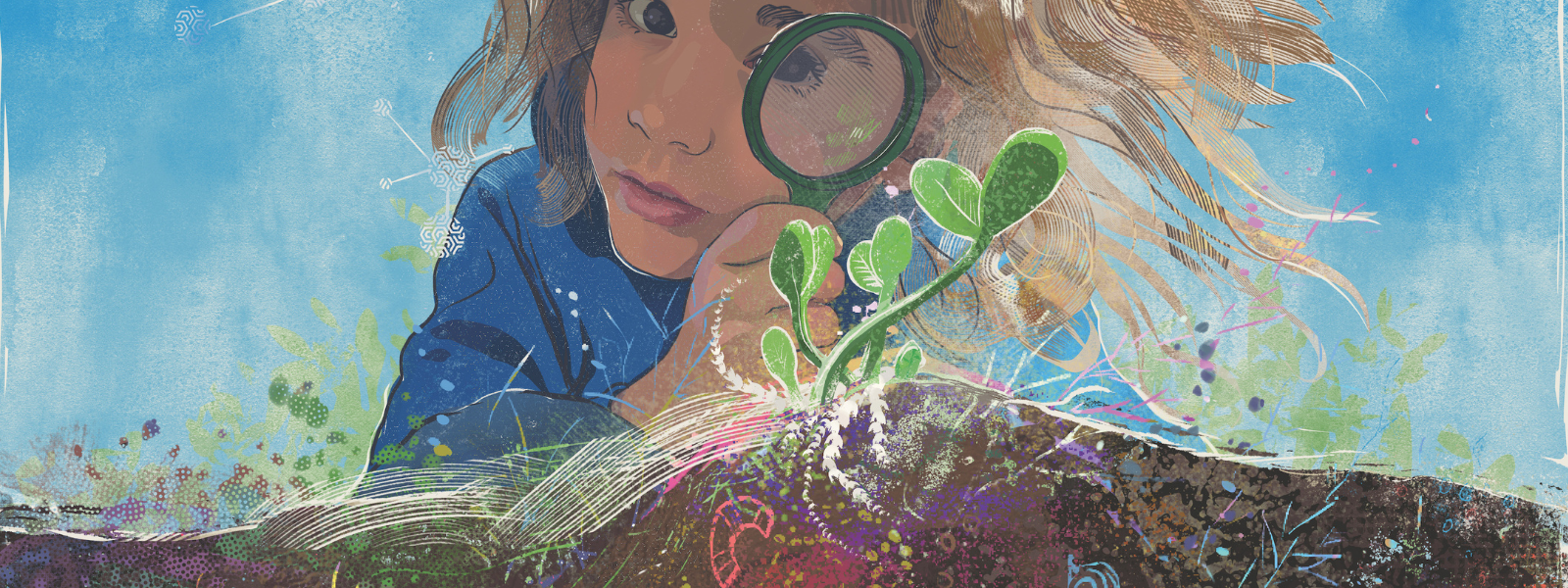
Regenerative Organic Agriculture
WHAT IS REGENERATIVE ORGANIC AGRICULTURE
In theory, regenerative organic agriculture represents a set of values and practices. There is no single agreed upon definition, and there are many practices adopted in the name of this movement. Unlike the term “organic,” there is no “regenerative” standard to meet in order to use the term to describe your products or your farm.
Often, the goals and terms used to define “regenerative organic agriculture” center around:
- Increasing soil carbon sequestration: keeping the soil covered with living plants (both crops and cover crops) for as much of the year as possible;
- Carbon cycling: leaving plant material, such as crop residue or cover crops, in the field to be incorporated into the soil;
- Restoring biodiversity to reverse the impacts of climate change: planting perennial crops and plants that support ecosystem functions, such as pollinator plantings and native hedgerows.
In practice, the focus is widely on the implementation of soil health building practices, and the establishment of perennial crops to accomplish these objectives.
The Rodale Institute’s definition is an excellent example. Robert Rodale used the term regenerative organic to describe “a holistic approach to farming that encourages continuous innovation and improvement of environmental, social, and economic measures.”
WHAT REGENERATIVE LOOKS LIKE AT CEDAR CIRCLE FARM & EDUCATION CENTER
Cedar Circle has spent much time digesting this complex term. We have adopted a definition for our own use that, like Rodale’s definition, attempts to be inclusive of the many influences impacting farm health. Our working definition is:
“Continuous improvement in all that we do: our biodiversity, crop health, soil health building practices, staff wellness, and community engagement.”
This clear, yet broad definition, helps us remain focused on our goals, and guides our decision making, practices, and agricultural philosophy.
Over the years, we have learned that balance and compromise are necessary to meet our goals, and we are continually adapting to our landscape, climate, and community needs. In the face of climate change, we believe that the most effective impact we can have towards building resilient communities and adaptive systems is to apply a tapestry of techniques and methods to our growing systems—essentially, building resilience into many facets of our farm rather than focusing intently on one or two practices.
In doing so, we reinforce the concept that our organization functions as an organism that is dependent upon the health and balance of all components, and we allow ourselves the flexibility and grace to continually evolve as emerging science, practices, and technologies inform our future decisions.
Cedar Circle is committed to reducing soil disturbance, building soil aggregation and soil organic matter, sequestering carbon, and enhancing biodiversity. We take steps each season to protect and enhance these systems on our farm, identifying and implementing new strategies as we learn and evolve.
Some of the strategies we are currently implementing, as of 2024:
- Full season fallow cover crop rotations in our fields;
- Multiple successions of cover crops in fields each year;
- No-till strawberry production;
- Occultation for crop termination and weed suppression;
- Cover cropping for nutrient management;
- Establishing perennial crops and native plants; and,
- Conservation tillage in select crops.
Paramount to the wellbeing of our farm and surrounding agricultural community is the support of our local community and dedicated staff.
Here’s how YOU can help support Regenerative Organic Agriculture at Cedar Circle Farm & Education Center!
- Buy our organic, farm-grown produce in the farmstand, at farmers’ markets, or through the Lyme Delivery program;
- Join our CSA!;
- Sign up for our email list to continue learning more about the farm, including: upcoming specials, discounts, growing tips, recipes, and community events you won’t want to miss!;
- Get to know your farmer’s and/or their growing practices! Read our weekly email newsletters, follow us on social media @CedarCircleFarm, visit our website, or reach out to us to ask questions – the more you know the more we grow!;
- Attend a workshop or take a farm tour at Cedar Circle to learn more about agricultural systems and landscape ecology, and to just have fun;
- Learn more and/or donate to our Research and Development program; and,
- Vote with your fork! Make every food choice with the environment in mind. Your purchases directly support our efforts to cultivate a localized food economy!
